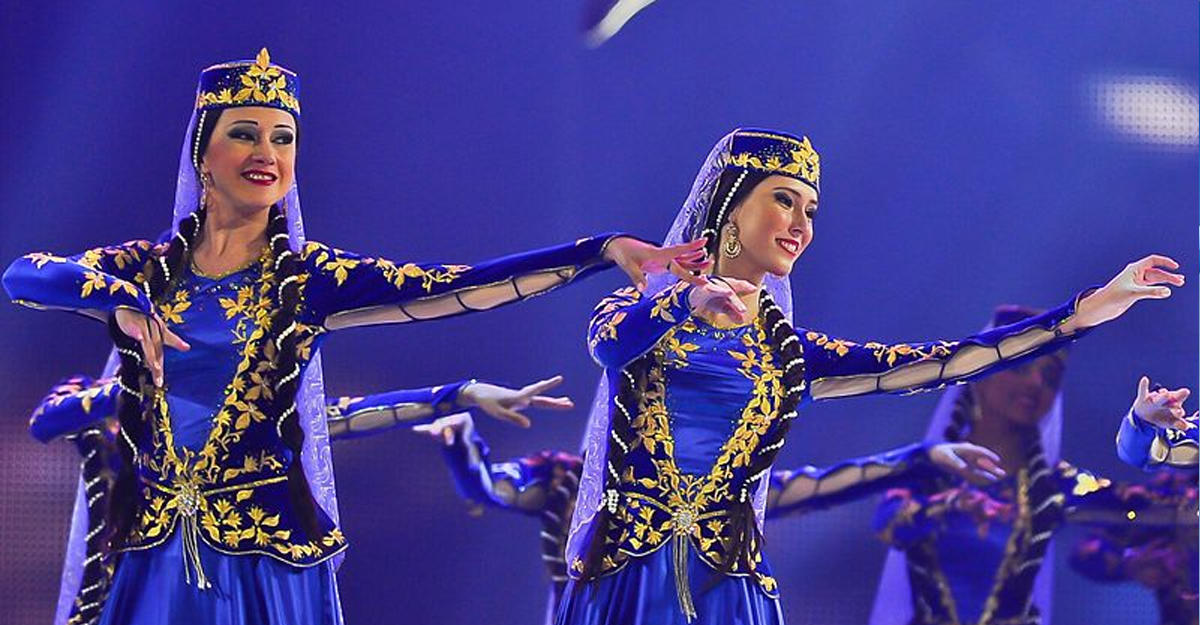Armenians continue appropriating Azerbaijani dances

By Amina Nazarli
Folk dances are part of the culture of any country. The history, tradition and character of the people and its temper can be traced through national dances.
One of the most popular and graceful dances of Azerbaijan is Uzundere, what means "long gorge". This ancient dance originated in Karabakh, in Uzundere areas and is performed both at weddings and other festive events often by women, but sometimes in pairs.
The beauty and grandeur of this dance attracts many peoples, some of which even aspire to appropriate it. Recently, the Copyright Agency has protested against the presentation of this ancient Azerbaijani folk dance as Armenian.
The agency told APA that some media outlets reported about a wedding ceremony in Moscow held on June 5, where a fragment of the Azerbaijani music was performed as Armenian.
In this connection, the Copyright Agency said that a video captured at a wedding ceremony and posted in Youtube (https://www.youtube.com/watch?v=ir0Skn-ZIbE) shows the performance of Azerbaijani folk dance Uzundere.
The melody of Uzundere dance was used by great Azerbaijani composer Uzeyir Hajibeyli in the song "Mən nə qədər qoca olsam da" (“No matter how old I am") in 1910 from his musical comedy "Not that, so this", which was also filmed in 1956.
Appropriating the Azerbaijani folklore samples, including folk dancing, has become a tradition of the cultural policy of Armenians. They collected and archived ancient Azerbaijani songs, translated them into their own language, and then presented as their own. Available evidence suggests that most of the samples of folk songs and music (about 90 percent) presented by Armenians as their own, are based on the Azerbaijani folk songs.
The book "Armenian foreign fairy tale" by Kamran Imanov, revealing numerous Armenian falsifications was published in 2013 in Azerbaijani, Russian, English, French and Turkish languages.
The Copyright Agency sends an official protest letter to the World Intellectual Property Organization over each case of appropriation samples of Azerbaijani literature and music.
The above fact is another example of the Armenian robbery of literature and music, which has been continuing over the years. This means violation of the Berne Convention for the Protection of Literary and Artistic Works.
Throughout the years Armenians continue to steal, appropriate and present Azerbaijani music, folklore and other samples of the Intangible Cultural Heritage as their own.
Many times, the people tried to appropriate Azerbaijani songs “Sari Gelin” “Susen Sunbul”, dances “Yalli,” “Vagzali,” as well as ancient musical instruments like tar, balaban, zurna and even works by prominent Azerbaijani composers such as Uzeyir Hajibeyli, Kara Karayev and Fikret Amirov.
Earlier last December, UNESCO did not recognize Kocheri as an Armenian folklore dance, which received a negative assessment from the organization based on five criteria. Azerbaijan in a guard of its history protested this move, producing necessary documents to the organization.
Kocheri is a kind of ancient Azerbaijani dance “Yalli”, which is depicted on the rock carvings in Gobustan dating to 10,000-8,000 years BC.
--
Amina Nazarli is AzerNews’ staff journalist, follow her on
Twitter: @amina_nazarli
Follow us on Twitter @AzerNewsAz
Here we are to serve you with news right now. It does not cost much, but worth your attention.
Choose to support open, independent, quality journalism and subscribe on a monthly basis.
By subscribing to our online newspaper, you can have full digital access to all news, analysis, and much more.
You can also follow AzerNEWS on Twitter @AzerNewsAz or Facebook @AzerNewsNewspaper
Thank you!
